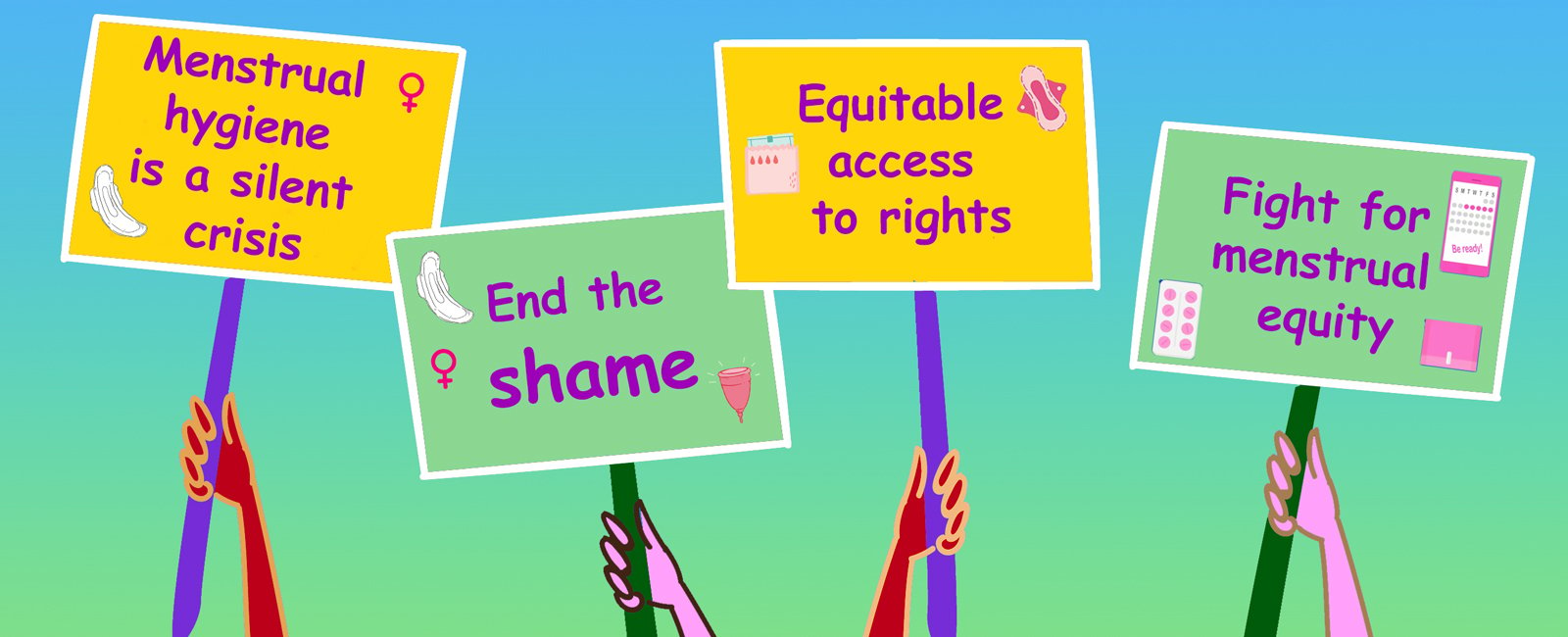Time for women to give strong voice to silent 'period' crisis
In a country like Pakistan, addressing the issue of menstrual hygiene also requires separating religious and cultural views

Poor menstrual hygiene is a silent crisis denying millions of girls and women in Pakistan their basic human rights and requiring immediate attention and action. Menstruation continues to be a taboo subject, causing women to face stigma, isolation, and deprivation during their monthly cycle.
Many do not have access to essential menstrual hygiene at home, workplace or school. Half of them do not even know about menstruation until they begin their periods. They lack basic knowledge about menstruation, particularly those in rural regions. The societal stigma prevents mothers from discussing it with their daughters, leaving them unprepared and uninformed about sanitation basics.
Certain schools in Pakistan address sexual health and menstrual hygiene in their biology and Islamic studies curricula, but there is no official education on these critical issues. The resulting lack of essential knowledge leaves young girls in the dark, leading to reliance on harmful myths. For instance, some still believe that women should avoid bathing during menstruation.
A sense of shame is also perpetuated by the stigma surrounding periods. Menstruating women are often deemed 'impure or unclean' and face cultural and religious restrictions, including limitations on visiting places of worship and engaging in certain activities.
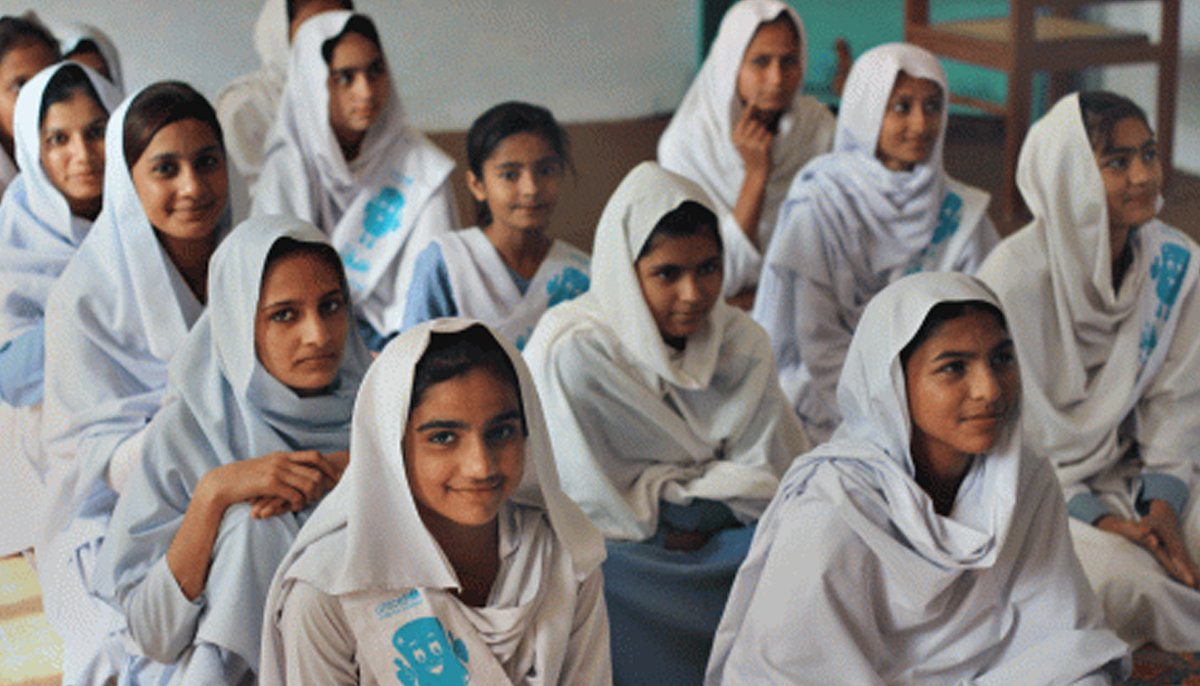
This mindset, coupled with the perception of periods as a private and disgraceful subject, prevents open dialogue and hinders girls from seeking support or advice when facing menstrual problems. Consequently, the lack of communication sustains the secrecy and social taboo surrounding the issue.
In Pakistan, poor menstrual hygiene stems not only from the lack of education but also from inadequate sanitation facilities. Women face challenges in managing their periods safely and with dignity due to the absence of female-friendly infrastructure in public spaces and workplaces.
Washrooms, clean water, sanitary bins, and changing rooms are often unavailable, and schools also lack these necessary facilities. To make matters worse, the high cost of menstrual products leads to absenteeism and dropouts, perpetuating poverty cycles and gender disparities. The 'pink tax' worsens period poverty, denying women their rights, comfort, and dignity, while endangering their health.
Activists worldwide, including doctors and public health advocates in Pakistan, call for the removal of luxury tax on menstrual products. These campaigns, however, continue to fall on deaf ears. Absurd taxes make essential menstrual hygiene products expensive and unattainable. The public and policymakers fail to recognise period poverty and menstrual hygiene as a health crisis demanding urgent attention. Low-income girls, thus, resort to unsanitary materials like cloth, leaves, and ashes due to their inability to afford hygienic products.
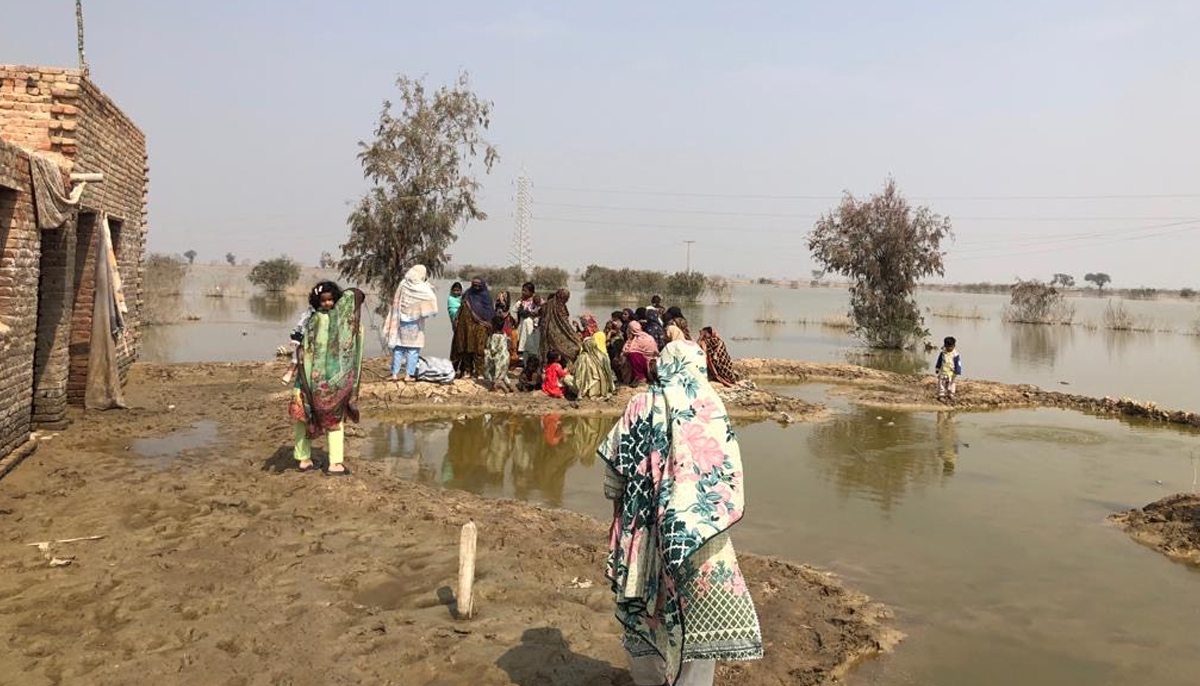
For too long, the issue of menstrual hygiene management has been swept under the rug, but recent floods in Balochistan and Sindh provinces, which affected more than 6.4 million people and destroyed more than 1,400 health facilities, have highlighted that the issue has become too pressing to ignore.
With rising illnesses, menstrual hygiene products became crucial for preventing infections. Shockingly, despite half of the flood victims being women, there was a severe shortage of feminine hygiene products during relief efforts. Social disapproval and stigma played a significant role in excluding period products from relief packages.
Some organisations also faced backlash from individuals who argued that food and shelter should take precedence over these items. The patriarchal norms in the region further compounded the difficulties for women in flood-affected areas, making it harder for them to communicate their needs and access relief packages.
Reflecting on the devastating effects of the 2010 floods, Bushra Mahnoor, the co-founder of Mahwari Justice, a menstruation relief campaign for flood victims, recounted an impactful experience.
"When I was just 10 years old, my family and I witnessed the destructive impact of the 2010 floods in Pakistan," she shared.
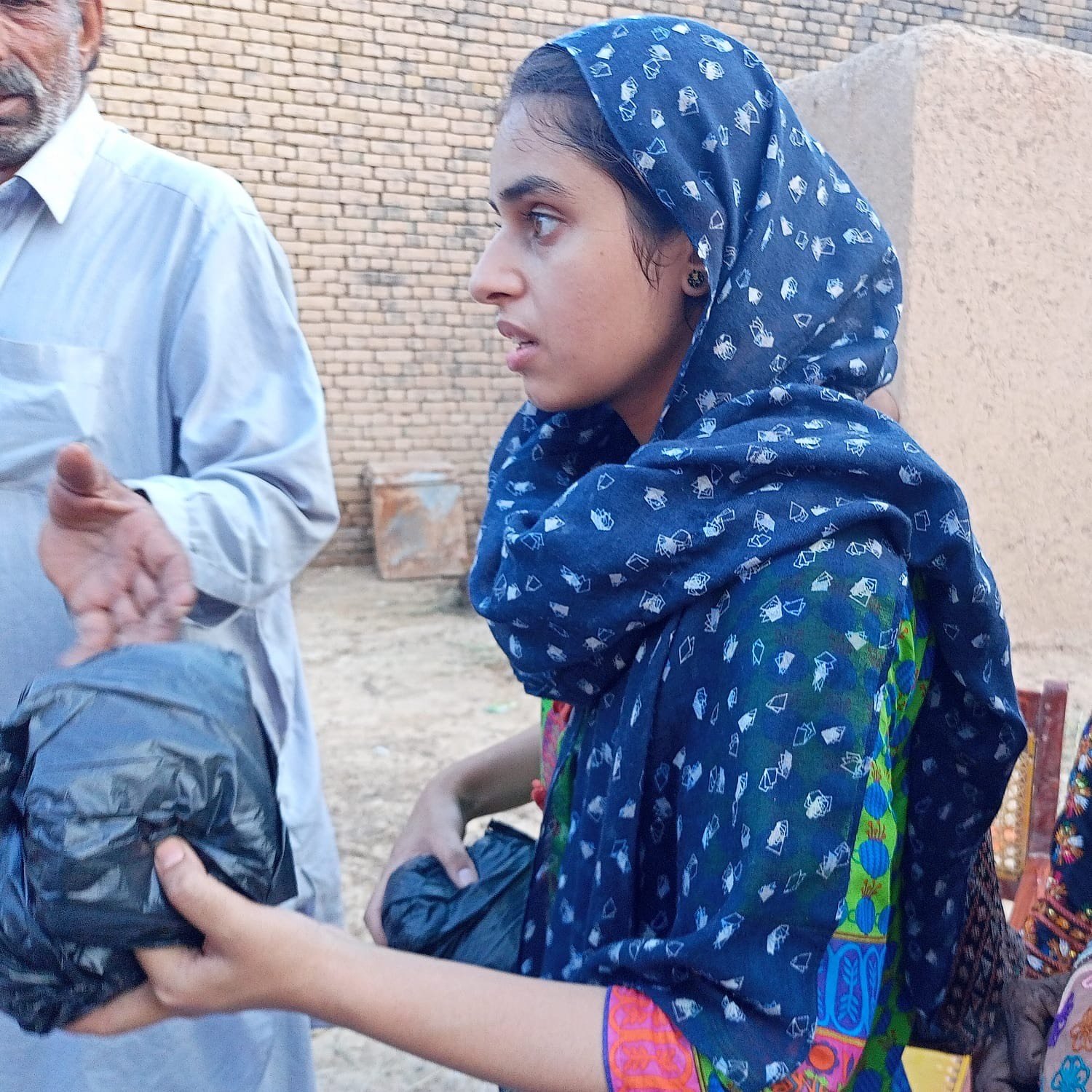
Homes, Mahnoor added, were destroyed, families were displaced, and people were left stranded on rooftops waiting for help. At a relief camp in Kherabad, I encountered a young girl, no older than myself, whose clothes were stained with blood.
"It was at that flood relief camp where she experienced her first period while her house was taken by floods," she said.
Years later, after the 2022 floods in Pakistan, the young social workers was committed to shielding future generations of girls from similar hardships. She co-founded Mahwari Justice as a grassroots movement addressing menstrual rights in Pakistan and providing menstrual health supplies for flood-affected individuals.
Through the support of generous donors and dedicated volunteers, they were able to reach out to 150,000 flood affectees and provide them with safe-period supplies. "We took the time to connect with the affected communities and understand their specific needs, allowing us to customise our menstrual relief kits accordingly," Mahnoor explained.
"We developed four types of period relief kits tailored to the unique requirements of women in flood-affected areas. These kits included cloth-based pads, microfiber-based towel sheets, biodegradable pads, and commercial pads.
"Additionally, we included small items such as combs, mirrors, nail clippers, needles, and thread. During the winter season, we also provided warm clothing like sweaters, shawls, and socks to help alleviate the added challenges of managing periods in cold weather," the Mahwari Justice co-founder added.
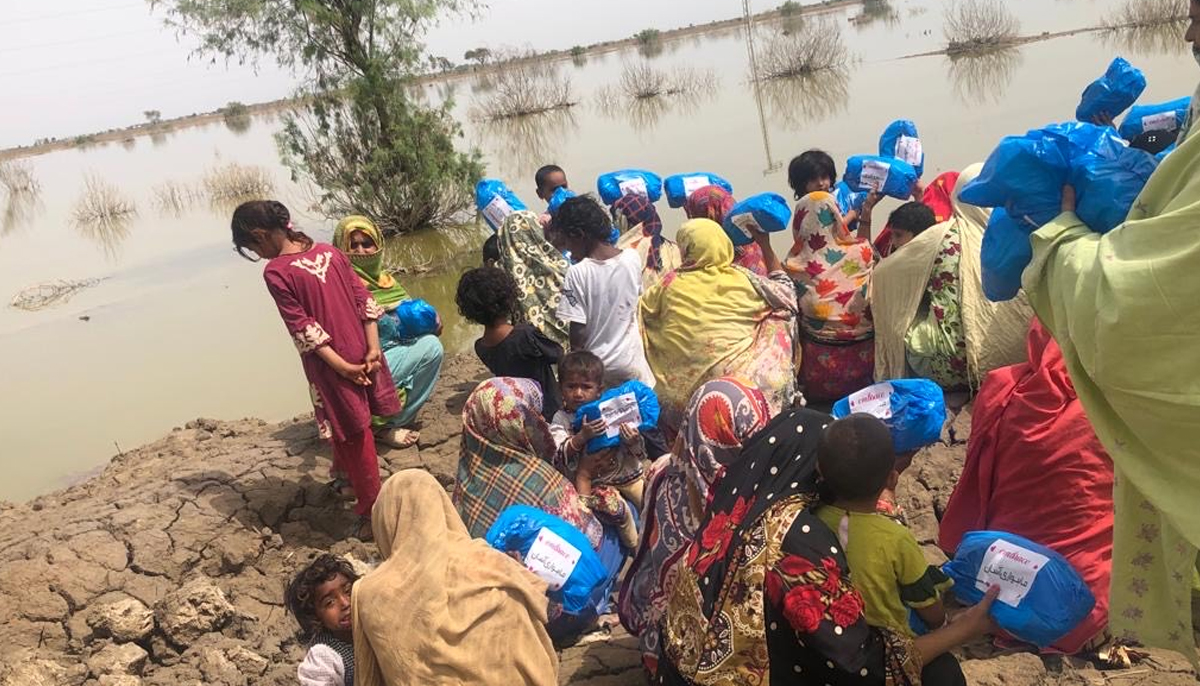
Commenting on her organisation's future strategy moving beyond the immediate aftermath of floods, Mahnoor said they are focusing on long-term sustainable measures to tackle period poverty, one of which is period education.
"To combat stigmas associated with menstruation, my team and I are creating a coming-of-age comic book that tackles this topic for kids. We engage with children through period games and using rap songs to destigmatise periods," she said sharing Mahwari Justice's plans.
The social worker added that her team has extended their efforts towards empowering women who are victims of gender-based violence and disabled women by providing them with employment opportunities to produce reusable pads.
"These pads are then distributed to those who lack access to safe period supplies. By addressing the issue of menstrual hygiene management, we not only offer practical support but also enable these women to earn a livelihood and regain their sense of dignity and independence," Mahnoor added.
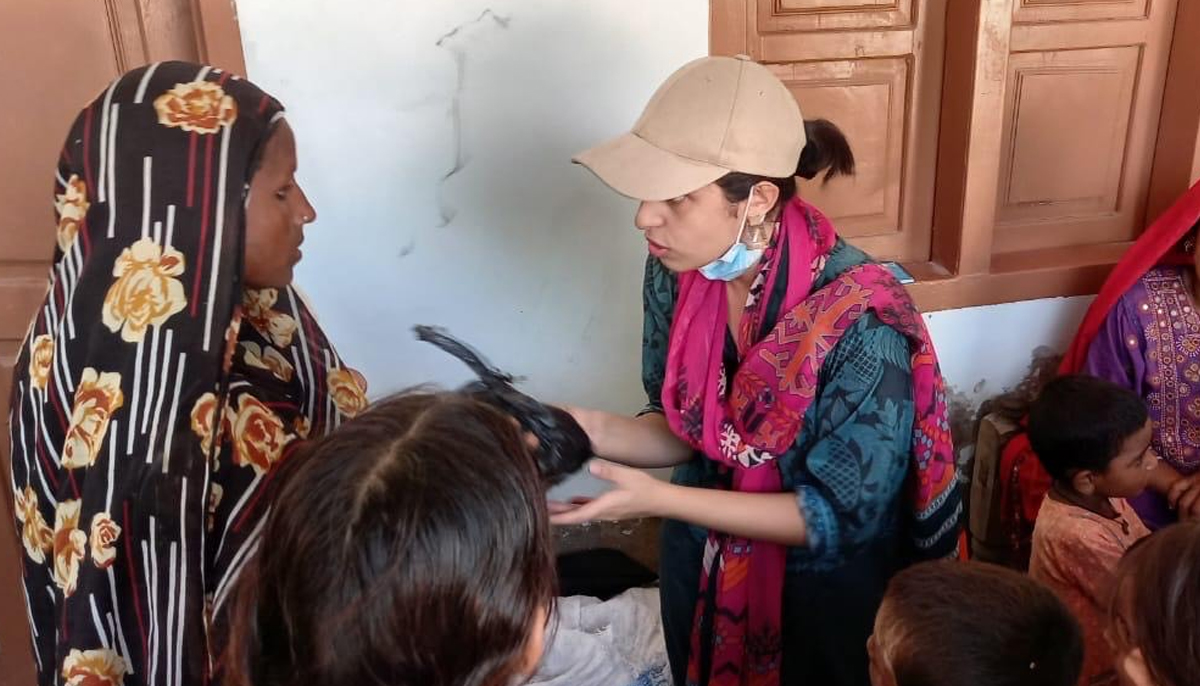
In a country like Pakistan, addressing the issue of menstrual hygiene also requires separating religious and cultural views. Shame is cultural, not theological. The operating actors must, therefore, work with religious actors to destigmatise the subject and change the negativity and dismissal towards it.
Expanding on the discussion, Maryam Jawad, Director Program of Sustainable Social Development Organisation (SSDO), highlights the multifaceted approach taken by her organisation.
"We believe there is a great need to dismantle social taboos around menstruation," she emphasised.
Her organisation, she added, stressed comprehensive menstrual hygiene education and challenging norms.
The team at SSDO aims to create a positive and accepting environment by engaging not only with young women, but also with other members of the community, including their mothers, family members, and even men.
Jawad further emphasised the importance of collaborating with influential figures such as midwives, LHWs (lady health workers), and women religious leaders, as they have the potential to act as catalysts for change within the community.
Discussing their past initiatives, she also shed light on SSDO's response to the flooding crisis. "Our team, along with our youth volunteers who were students of public health, designed and launched a digital social advocacy campaign," she said.
The campaign aimed to include menstrual hygiene and neonatal kits in relief packages for flood-affected women. SSDO mobilised young individuals to raise awareness on social media, resulting in increased public awareness and positive responses from organisations.
In some ways, floods helped raise awareness and garner support. Many initiatives, despite various obstacles, helped flood-affected women. However, a calamity should not be the sole catalyst for highlighting this long-standing, overlooked crisis in our society. Sustainable efforts must be made to end the taboo surrounding periods and promote healthy hygiene practices.
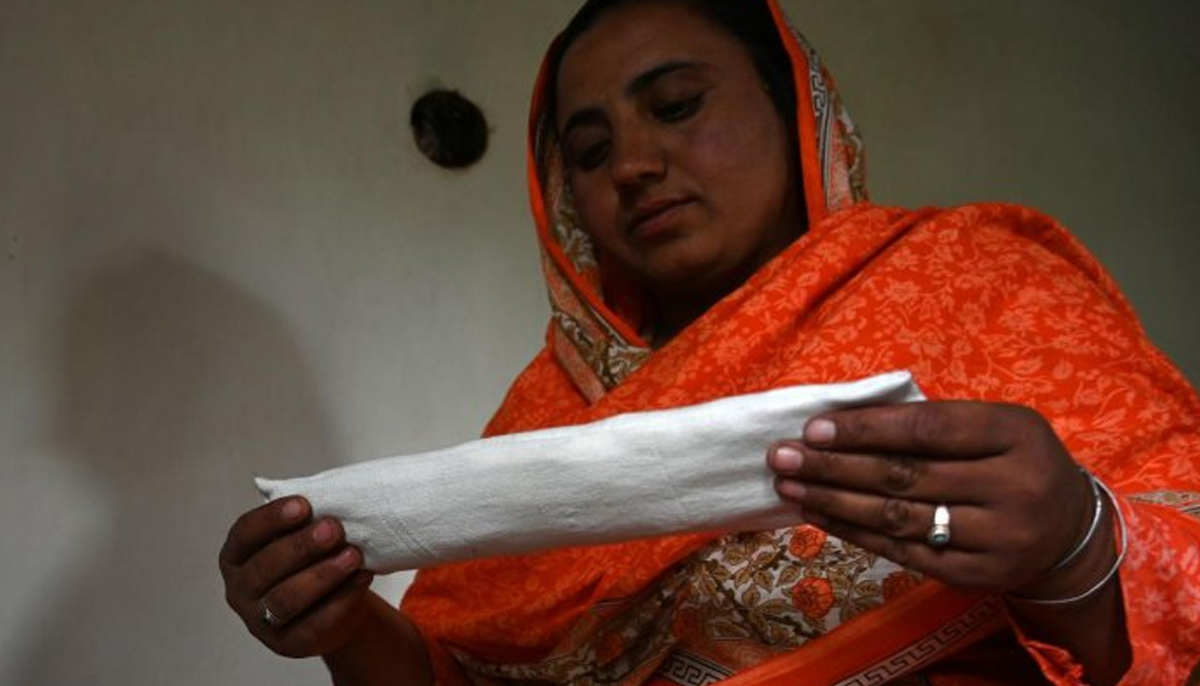
As a first step, involving men and boys in conversations about periods at the household level can help break the stigma surrounding menstruation. Additionally, accurate menstrual information should be promoted among young girls to dispel myths and empower informed decisions. Pakistan must include menstrual hygiene education in the official curriculum to ensure universal access for girls.
By actively involving boys in education campaigns, as they play a pivotal role in fostering an inclusive and accepting environment, and promoting gender equality, the path toward menstrual equity can be paved. To ensure equitable access and improved health for girls, the government should invest in education and healthcare infrastructure.
For equitable access for girls and to improve their overall health and prospects, the government should invest in education and healthcare infrastructure. This includes prioritising the construction and maintenance of gender-sensitive lavatories and handwashing stations in schools and public places, ensuring sufficient water supply, and providing proper disposal facilities for menstrual hygiene products.
Collaborating with NGOs and private organisations can help provide free or subsidised menstrual hygiene products to low-income girls. Additionally, community-led initiatives tailored to local needs can develop sustainable solutions. Civil society organisations could also be resourceful in promoting policy changes, educating women, and raising awareness for legislative reforms that benefit women and girls.
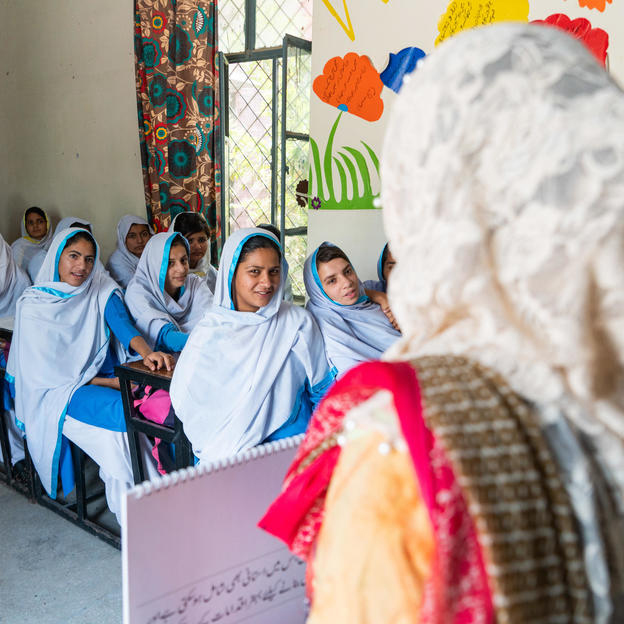
We are long overdue for a radical transformation and a complete overhaul of our societal mindset. It is time to break free from the chains of androcentrism and start prioritising the experiences and needs of women. This archaic approach must be swiftly replaced with an inclusive and accepting attitude that embraces open conversations about menstruation, fostering a culture of respect and understanding for everyone.
It is imperative that we join forces, unite in our commitment to change, to ensure that every girl and woman in Pakistan is afforded the necessary resources and opportunities to manage her menstrual health with dignity and pride. Our collective action is the only path forward, and silence is no longer an option in this battle for menstrual equity.
Zehra Batool is a freelance journalist



